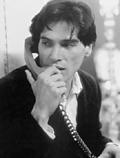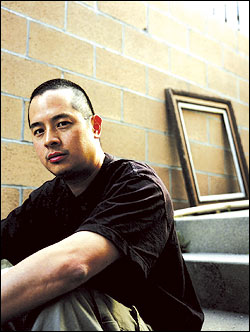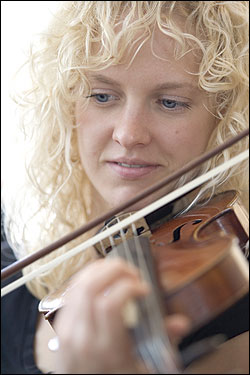HOW MANY TIMES have you found yourself in an argument that boiled down to semantics—where you basically agreed on everything except how to frame your viewpoints? Such arguments generally seem stupid after the fact, if not during it. Unless, that is, the questions at hand are about how far to go to prove one’s point, how many risks one should take to enact change, whether one should risk hurting a friend by sacrificing oneself for the greater good.
WAKING THE DEAD
directed by Keith Gordon
with Billy Crudup and Jennifer Connelly
opens March 24 at Broadway Market
This is why the social and political upheavals of the late ’60s and early ’70s continue to weigh so heavily on the collective American mind: Even people on the same side of the fence had to further define their territory. So while Waking the Dead is hardly a masterpiece, it is a rarity, a movie about the intricacies of that era’s ideological clashes that’s thoughtful without being tepid and balanced without seeming compromised. It also employs a framing device—a love story between aspiring young politician Fielding Pierce (Billy Crudup) and radical student Sarah Williams (Jennifer Connelly)—that doesn’t constantly bat you over the head with its symbolic significance.
Which isn’t to say the movie lacks symbolism. The ’70s love story is told in flashback from the ’80s, as Fielding, now campaigning for Congress, obsesses about long-lost Sarah to the point of . . . seeing her? He thinks he’s losing his mind, though he’s tight-lipped enough to keep it mostly to himself. It’s here that the larger dilemma comes forth: Was Sarah right about the innate corruption of political office? Is he just kidding himself? For Fielding’s questions, only one answer seems cut-and-dried: He definitely doesn’t love his current girlfriend, Juliet, the niece of his mentor, a behind-the-scenes kingmaker nicely underplayed by Hal Holbrook. It’s too bad Juliet is such a ready-made cipher—partly because actress Molly Parker seems capable of much more than she’s given to do, partly because the situation seems contrived in a movie whose most gratifying aspect is its sense of honesty.
That’s especially true of the youthful romance itself, which seems rooted both emotionally and physically. Crudup and Connelly project a healthy, playful sexual attraction without seeming exhibitionistic about it. Both young Fielding and Sarah are hugely idealistic and a bit reserved, so it’s eye-opening to see them open up to each another in private. And when the initial rush subsides, they manage the trick of simultaneously growing into each another’s personalities and hardening their individual identities. Of course their breakup was inevitable; the tension caused by their increasing ideological distance would have become even more untenable as the years went by. But Waking the Dead makes the politician Fielding’s loss real, which is why it works as an allegory: We care about the people in it whether or not they stand for something larger than themselves.








